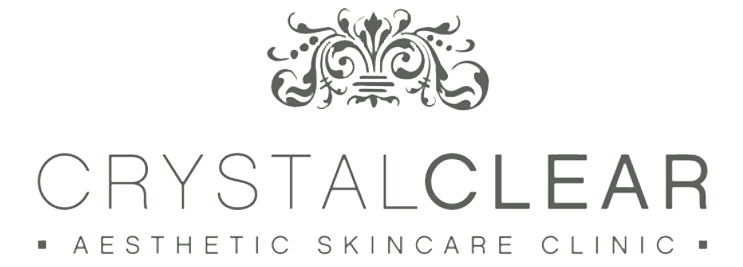Blog
5 Reasons to get a good nights’ sleep
The Connection Between Sleep and Healthy Skin: Why Beauty Sleep Matters
A good night’s sleep is essential for overall health, helping the body rest, recover, and repair from daily stress. The skin, the body’s largest organ (covering an average of 2 square meters), relies on quality sleep to stay healthy, radiant, and youthful.
If you find yourself lying awake at night, struggling to get the recommended 7–9 hours of sleep, you’re not alone. According to the Sleep Foundation, up to 70 million American adults suffer from sleep disorders.
While the occasional all-nighter might not seem like a big deal, chronic sleep deprivation can take a serious toll on your body. Increased levels of the stress hormone cortisol can impair brain function, raise the risk of heart disease, and slow down the body’s natural repair processes. Lack of sleep is also linked to weight gain and other negative metabolic effects.
But the most visible signs of sleep deprivation appear on your skin. Here’s how poor sleep impacts your complexion—and what you can do to wake up looking refreshed.
How Lack of Sleep Affects Your Skin, Hair, and Nails
Getting enough sleep is essential for overall health, but did you know that poor sleep can also impact your skin, hair, and nails? Chronic sleep deprivation accelerates aging, causes breakouts, and even weakens your hair and nails. Here’s how:
1. Sleep Deprivation Can Make You Look Older
Lack of sleep slows down cellular repair and regeneration, leading to premature aging. Research shows that sleep-deprived individuals often experience:
✅ Deeper wrinkles and fine lines
✅ Enlarged pores and skin redness
✅ Loss of skin elasticity due to collagen breakdown
Sleeping on your side can also contribute to sleep wrinkles, as constant pressure on one side of your face deepens lines over time. To prevent this, try using a silk pillowcase, which reduces friction and may even enhance the absorption of your skincare products.
💡 Pro Tip: Hydrate and revitalize tired skin with an overnight mask like IMAGE Skincare Overnight Masks.
2. Lack of Sleep Can Cause Breakouts
Poor sleep weakens the immune system, making it harder for your skin to fight off acne-causing bacteria. When dead skin cells, oil, and keratin clog pores, bacteria settle in, leading to breakouts and inflammation.
✔️ Getting enough restful sleep helps boost your immune response and keep skin clear.
💡 Try This: Use a clarifying lotion like IMAGE Skincare Clarifying Lotion to reduce redness and help fade acne scars.
3. Sleep Deprivation Can Worsen Skin Conditions
If you suffer from psoriasis, eczema, rosacea, or acne, lack of sleep can trigger flare-ups. Sleep deprivation increases stress hormones and inflammation, worsening these conditions.
The hypothalamic-pituitary-adrenal (HPA) axis gets activated due to stress, leading to increased skin irritation and sensitivity. Managing stress and prioritizing sleep can help improve your skin’s overall health.
4. Poor Sleep Can Lead to Hair Loss
Melatonin, the hormone that regulates sleep, also plays a role in hair growth. When sleep deprivation reduces melatonin levels, it can contribute to:
❌ Hair thinning
❌ Increased hair shedding (telogen effluvium)
❌ Weakened hair follicles
Chronic stress from sleep deprivation can also disrupt the hair growth cycle, leading to noticeable hair loss over time.
5. It Can Make Your Nails Weak and Brittle
Not getting enough sleep can weaken your nails, causing them to:
💅 Chip, tear, or break easily
💅 Struggle to hold gel manicures
💅 Become brittle due to impaired nail root matrix function
Prioritize Sleep for Healthier Skin, Hair, and Nails
A good night’s sleep is one of the best beauty treatments you can give yourself. By improving your sleep habits, you can enhance your skin’s glow, prevent breakouts, support hair growth, and strengthen your nails.
Want to wake up looking refreshed? Check out IMAGE Skincare’s overnight treatments to nourish and protect your skin while you sleep.
How to Improve Sleep for Healthier Skin and Overall Wellness
Struggling with poor sleep? A consistent bedtime routine can enhance sleep quality, improve skin health, and boost overall well-being. Here’s how you can create better sleep habits:
1. Stick to a Consistent Sleep Schedule
⏰ Go to bed at the same time every night to regulate your body’s internal clock. Aim for 7–9 hours of sleep to allow proper rest and recovery.
2. Avoid Alcohol and Tobacco Before Bed
🍷 Alcohol and nicotine can disrupt deep sleep cycles, leaving you feeling unrested and affecting your skin’s ability to repair itself overnight. Reduce consumption before bedtime for better sleep quality.
3. Stay Hydrated
💧 Keep a glass of fresh water on your bedside table to prevent dehydration. Proper hydration supports skin elasticity and prevents dryness while you sleep.
4. Keep Electronics Out of the Bedroom
📱 The blue light from screens (smartphones, tablets, TVs) disrupts melatonin production, making it harder to fall asleep. Avoid screens at least 1 hour before bed to promote better rest.
5. Upgrade Your Bedding for Comfort
🛏️ High-thread-count sheets can enhance comfort, leading to a deeper, more restful sleep. Investing in quality bedding can make a big difference in sleep quality.
6. Elevate Your Head While Sleeping
🛌 Using an extra pillow or bed wedge helps reduce:
✔️ Snoring
✔️ Acid reflux
✔️ Postnasal drip
Better breathing = better sleep, which means fewer sleep-related skin issues like puffiness, dullness, and breakouts.
Prioritize Sleep for a Healthier You
By making these simple adjustments, you can improve your sleep, enhance your skin’s appearance, and boost overall health. Prioritize quality rest to wake up feeling and looking refreshed every day!


